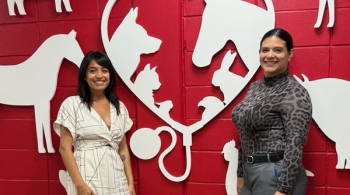
Florida dean says scholarships are best answer to debt
James Lloyd, DVM, PhD, plans to raise $5 million for scholarshipsand hopes other schools will too.
College tuition isn't likely to decrease, or public funding increase for veterinary schools, says James Lloyd, DVM, PhD, the dean of the University of Florida (UF)College of Veterinary Medicine. And expecting starting salaries to help new graduates combat six-figure debt is like trying to put out a four-alarm fire with a garden hose, he says.
James Lloyd, DVM, PhD
So, Dr. Lloyd and his UF colleagues are taking the student debt issue into their own hands. He announced in January the launch of the Dean's Scholarship Initiative with the mission to raise $5 million in scholarship funds in the next 10 years.
But how does a college that traditionally awards anywhere from $450,000 to $750,000 a year in scholarships get to its lofty goal of $5 million?
How it's working
First, the college announced a challenge-matching gift of $100,000 from former UF veterinary medical college professor Paul Nicolletti, DVM. It has since been matched. Next, Dr. Lloyd did something fundraisers don't traditionally do: He went first to the veterinary profession.
We're not terribly wealthy as a group,” Dr. Lloyd says, but “veterinarians understand this. If we start the conversation there and get engagement-whether they can give money or help us identify those friends of the profession-we're working with the veterinary community to solve this issue.”
Finally, he brought the initiative to a special group of boosters who provide financial support and feedback to the veterinary school dean. Right now, he's asking them to channel their efforts toward scholarship, and that's where the majority of the initiative's funding, thus far, has been generated.
Dr. Lloyd says momentum with the initiative is already growing. “The total scholarship money we awarded this fiscal year was 24 percent higher than the previous fiscal year, and student debt load was 11 percent lower,” he says.
What the future holds
Dr. Lloyd says the Dean's Scholarship Initiative will not affect admission standards or class size. However, it may help recruit new groups of students such as first-generation college students and those from underrepresented communities, he says.
“If we learn enough about raising money in veterinary medicine there's always good things to do with it,” he says. “Right now, it's student debt.”
Newsletter
From exam room tips to practice management insights, get trusted veterinary news delivered straight to your inbox—subscribe to dvm360.






